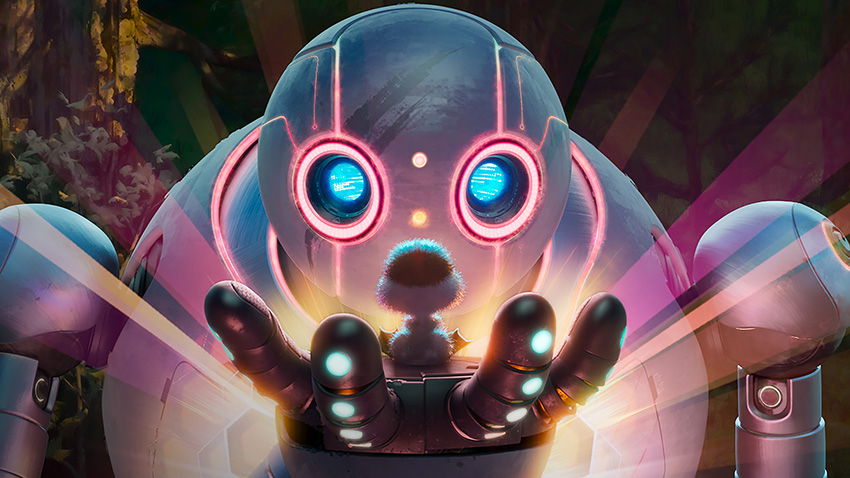The Wild Robot is a film based on a book by Peter Brown and is a captivating story about a robot named Roz who, after being shipwrecked on a deserted island, learns to live among animals and form meaningful relationships with them.
This story is deceptively simple, presenting complex themes through a narrative that combines adventure with profound reflections on human (and non-human) connection. At its heart, The Wild Robot explores how hospitality can redefine relationships, particularly when individuals who seem to have nothing in common come together to foster understanding, empathy, and cooperation.
Roz’s journey on the island begins with a stark contrast: she is a machine, engineered for labour, in a world of organic, living creatures. At first, the animals are frightened by her mechanical appearance and strange, automated movements. To them, she is an alien presence, an unwelcome intruder in their world. This initial fear and distance highlight the natural tendency to distrust the “other,” someone (or something) different from ourselves. However, Roz’s willingness to adapt and help her new neighbours reflects a shift from her initial programming; she begins to learn what it means to be compassionate, responsive, and above all, hospitable.
Hospitality becomes a transformative force in Roz’s life. Though programmed with basic functionality, Roz goes beyond her initial design by observing the island’s inhabitants and learning their ways. Her actions create a ripple effect; as she shows kindness and a willingness to help, the animals slowly start to trust her, and eventually, some even begin to care for her in return. Roz’s hospitality is first put to the test when she adopts a young gosling named Brightbill, whose mother was killed accidentally during Roz’s early days on the island. Although she has no biological bond with him, Roz assumes the role of a parent, a turning point that redefines her identity. Her love and dedication to raising Brightbill defy her programming, demonstrating how hospitality reprograms Roz to become more empathetic, self-sacrificing, and emotionally intelligent.
Through Roz’s journey, the film (and its source material, the book) explores the idea that hospitality is not just a one-time act; it requires continual growth and adaptation. Roz’s relationship with the other animals deepens as she learns their ways and respects their needs. The animals, too, come to appreciate Roz’s presence on the island, recognizing her contributions to their community. For example, when winter arrives and the island becomes harsh and unforgiving, Roz’s innovative thinking and willingness to help the animals prepare for survival ultimately forge lasting bonds. She builds lodges, shelters, and even organizes food storage for them, acts that foster trust and goodwill. This moment underscores the theme that true hospitality can transcend initial biases and fears, creating a mutual sense of responsibility and care.
The Wild Robot suggests that hospitality is the foundation of real relationships, especially between beings who initially misunderstand or even fear each other. Roz’s growing relationships with the island’s inhabitants underscore the idea that hospitality requires openness and patience to embrace those who are different. By embracing this principle, Roz teaches the animals the value of coexistence, while they, in turn, reshape her identity from an isolated machine to a beloved community member. Through these relationships, both Roz and the animals grow, their lives enriched by one another’s companionship and support.
Brown’s tale is also a subtle reflection on how empathy can emerge in the most unexpected of places. Roz’s reprogramming is not just technical; it is emotional and moral, reshaping her into a figure who embodies the warmth, care, and protectiveness typically associated with family and friendship. In a broader sense, The Wild Robot suggests that hospitality can be a powerful tool for bridging divides. It encourages readers to consider how showing openness and kindness to those who are different can reshape their own lives and communities.
The animation used to bring Peter Brown’s novel to life is beautiful and seems to merge both hand-drawn and CGI to enliven and enhance his message. Chris Sander’s direction and the flawless voice cast round out the viewing experience. Lupita Nyong’o’s performance as Roz, is the beating heart of the film.
In The Wild Robot, hospitality is more than a theme; it is a catalyst that redefines relationships and reshapes identities, something that shouldn’t be lost on Christian viewers. Roz’s transformation illustrates that even the most unlikely connections can lead to fulfilling and reciprocal relationships when approached with compassion and openness.
The film ultimately leaves audiences with a hopeful message: the potential for meaningful relationships exists everywhere, and hospitality is the key that unlocks this potential, even in the unlikeliest of beings.












